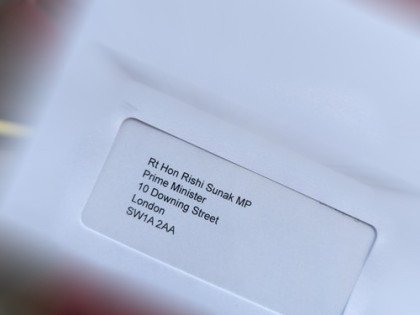When questioned on social media, Diver became defensive and pointed to “the research”. The recent Oxford University alumni is no scientist and, so it would seem, isn’t much for delving deep into a subject as a journalist either.
What Diver has done is take a press release from Coventry University, copy-paste the salacious pieces and added in some of his own. It’s a puerile attempt at covering a scientific story that has strong implications for the health of the nation.
Coventry University’s E. Fulton and K. Gokal produced the paper, in conjunction with S. Griffiths and S. Wild from Public Health Warwickshire. They justify the money spent by claiming: “experimental use in adolescence is a growing international concern.”
The quotes in Diver’s piece/press release from the lead author Fulton is summed up by Louise Ross, former Stop Smoking Service manager for Leicester: “As usual, a heap of ‘may’ and ‘could’ in the item. The usual disaster-fantasising with no evidence.”
The weakness of the study is highlighted by the quality of research cited. The team relied on just 10 papers to prop up their arguments. They included:
- A slanted, flawed paper by the Centres for Disease Control
- A paper from John Hopkins University (which has released a number of poor quality anti-vape studies)
- A paper by Stanton Glantz (roundly laughed at)
- A paper saying teen use is unclear (ignoring ones like that covered by The Guardian, more of that further on)
- A paper’s findings stating a lack of evidence for a gateway into full-time smoking was misrepresented
- An old paper that has been superseded by better, more thorough work by the same author that contradicts the original
This means that sixty percent of the research used to validate the research by the team from Coventry is either wrong or redundant; the sources have been cherry picked in order to support a predetermined position. It has all the substance of an anorexic ghost during daylight hours.
More than this, the paper fails to provide raw data or thorough detail. For example, the team don’t even think it important to include samples of their questions – let alone the full questionnaire.
The team issued its questionnaires to 499 school pupils, aged between 11 and 16 years, across four schools in one country. Such studies, with questions completed by (among others) bored and/or mischievous students during PSHE time, fail to illicit actual detail and offer a very poor level of evidence. Researchers using such approaches can, at best, obtain a rough overview – but nothing that would allow them to make broad, sweeping statements to the media about national or international trends – or whip up fears of a reduced harm product.
Moreover, had Diver taught himself how to Google while at Oxford University, he could have discovered coverage on precisely this topic in The Guardian, last year, including extensive research by Linda Bauld et al.
Her data covered 60,000 young people, not a paltry 499. In it, they found “prevalence of regular use did not change remaining at 1%. In summary, surveys across the UK show a consistent pattern: most e-cigarette experimentation does not turn into regular use, and levels of regular use in young people who have never smoked remain very low.”
At the time, we quoted Linda Bauld saying: “Recent studies have generated alarming headlines that e-cigarettes are leading to smoking. Our analysis of the latest surveys from all parts of the United Kingdom, involving thousands of teenagers shows clearly that for those teens who don’t smoke, e-cig experimentation is simply not translating into regular use.”
“Our study also shows that smoking rates in young people are continuing to decline. Future studies on this subject need to continue to monitor both experimentation and regular use of e-cigarettes and take into account trends in tobacco use if we are to provide the public with accurate information.”
Diver’s website CV claims he was the “Winner of the 2017 Philip Geddes Prize for student journalism. Selected as “the most promising student journalist at Oxford University” and awarded £2,500” – which gives hope to us all wanting to become journalists, but not for future balanced coverage of harm reduction and vaping.
One sentence at the end of an article isn’t balance, Diver: it’s a joke.
Dave Cross
Journalist at POTVDave is a freelance writer; with articles on music, motorbikes, football, pop-science, vaping and tobacco harm reduction in Sounds, Melody Maker, UBG, AWoL, Bike, When Saturday Comes, Vape News Magazine, and syndicated across the Johnston Press group. He was published in an anthology of “Greatest Football Writing”, but still believes this was a mistake. Dave contributes sketches to comedy shows and used to co-host a radio sketch show. He’s worked with numerous vape companies to develop content for their websites.
Join the discussion
Stabbing School Uses Sniffer Dogs
A school that was recently at the centre of a stabbing investigation is focussing on overblown vaping fears and going over the top with a canine response
Trading Standards Welcomes Clarity
The Chartered Trading Standards Institute says it welcomes the “clarity and action from government to tackle youth vaping” with the plan to ban disposable vapes and related announcements
UKVIA Writes To Sunak
The UKVIA has sent a letter to Prime Minister Rishi Sunak to 'express profound dismay and disappointment' that the government has decided to proceed with a ban on disposable vapes
FOI Shows Disposables Ban Folly
389 Freedom of Information requests made by leading online retailer Vape Club and one by the BBC demonstrate the extent to which a ban on disposable vapes is a complete act of folly












